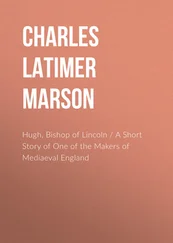Paul Vinogradoff - Villainage in England - Essays in English Mediaeval History
Здесь есть возможность читать онлайн «Paul Vinogradoff - Villainage in England - Essays in English Mediaeval History» — ознакомительный отрывок электронной книги совершенно бесплатно, а после прочтения отрывка купить полную версию. В некоторых случаях можно слушать аудио, скачать через торрент в формате fb2 и присутствует краткое содержание. Жанр: foreign_prose, Юриспруденция, История, foreign_edu, foreign_antique, на английском языке. Описание произведения, (предисловие) а так же отзывы посетителей доступны на портале библиотеки ЛибКат.
- Название:Villainage in England: Essays in English Mediaeval History
- Автор:
- Жанр:
- Год:неизвестен
- ISBN:нет данных
- Рейтинг книги:4 / 5. Голосов: 1
-
Избранное:Добавить в избранное
- Отзывы:
-
Ваша оценка:
- 80
- 1
- 2
- 3
- 4
- 5
Villainage in England: Essays in English Mediaeval History: краткое содержание, описание и аннотация
Предлагаем к чтению аннотацию, описание, краткое содержание или предисловие (зависит от того, что написал сам автор книги «Villainage in England: Essays in English Mediaeval History»). Если вы не нашли необходимую информацию о книге — напишите в комментариях, мы постараемся отыскать её.
Villainage in England: Essays in English Mediaeval History — читать онлайн ознакомительный отрывок
Ниже представлен текст книги, разбитый по страницам. Система сохранения места последней прочитанной страницы, позволяет с удобством читать онлайн бесплатно книгу «Villainage in England: Essays in English Mediaeval History», без необходимости каждый раз заново искать на чём Вы остановились. Поставьте закладку, и сможете в любой момент перейти на страницу, на которой закончили чтение.
Интервал:
Закладка:
Villain tenure and villain service.
An inquiry into the condition of villains would be altogether incomplete, if it did not touch on the questions of villain tenure and villain services. Both are intimately connected with personal status, as may be seen from the very names, and both have to be very carefully distinguished from it. I have had to speak of prescription as a source of villainage. Opinions were very uncertain in this respect, and yet, from the mere legal point of view, there ought not to have been any difficulty about the matter. Bracton takes his stand firmly on the fundamental difference between status and tenure in order to distinguish clearly between serfs and free men in a servile position 104 104 Bracton, f. 26 b, 200. Cf. Bract. Note-book, pl. 141: 'Dicit quod tunc temporis scilicet in itinere iusticiariorum tenuit ipse quamdam terram in uillenagium quam emerat, et tunc cognouit quod terra illa fuit uillenagium, et precise defendit quod nunquam cognouit se esse uillanum.'
. The villain is a man belonging to his lord personally; a villain holding ( villenagium ) is land held at the will of the lord, without any certainty as to title or term of enjoyment, as to kind or amount of services 105 105 Britton, ii. 13; Y.B. 20/21 Edw. I, p. 41: 'Kar nent plus neit a dire, jeo tenk les tenements en vileynage de le Deen etc. ke neit a dire ke jeo tenk les tenements … a la volunte le Deen etc.'
. Serfs are mostly, though not necessarily, found on villain land; it does not follow that all those seated on villain land are serfs. Free men are constantly seen taking up a villenagium ; they do not lose by it in personal condition; they have no protection against the lord, if he choose to alter their services or oust them from the holding, but, on the other hand, they are free to go when they please. There is still less reason to treat as serfs such free peasants as are subjected to base services, i.e. to the same kind of services and payments as the villains, but on certain conditions, not more and not less. Whatever the customs may be, if they are certain, not only the person holding by them but the plot he is using are free, and the tenure may be defended at law 106 106 Bracton, f. 168.
.
Such are the fundamental positions in Bracton's treatise, and there can be no doubt that they are borne out in a general way by legal practice. But if from the general we turn to the particular, if we analyse the thirteenth-century decisions which are at the bottom of Bracton's teaching, we shall find in many cases notions cropping up, which do not at all coincide with the received views on the subject. In fact we come across many apparent contradictions which can be attributed only to a state of fermentation and transition in the law of the thirteenth century.
Martin of Bestenover's case.
Martin of Bestenover's case is used by Bracton in his treatise as illustrating the view that tenure has no influence on status 107 107 Ibid., f. 199 b.
. It was a long litigation, or rather a series of litigations. Already in the first year of King John's reign we hear of a final concord between John of Montacute and Martin of Bestenover as to a hundred acres held by the latter 108 108 Palgrave, Rotuli Curiae Regis, ii. 192.
. The tenant is ejected however, and brings an assize of mort d'ancestor against Beatrice of Montacute, who, as holding in dower, vouches her son John to warranty. The latter excepts against Martin as a villain. A jury by consent of the parties is called in, and we have their verdict reported three times in different records 109 109 Placitorum Abbrev. 25, 29; Note-book, pl. 88. (The father is called Ailfricus in the Plea Roll Divers terms 2 John, 2 d., at the Record Office.)
. They say that Martin's father Ailfric held of John Montacute's father a hundred acres of land and fifty sheep besides, for which he had to pay 20 s. a year, to be tallaged reasonably, when the lord tallaged his subjects, and that he was not allowed to give his daughter away in marriage before making a fine to the lord according to agreement. We do not know the decision of the judges in John's time, but both from the tenor of the verdict and from what followed, we may conclude that Martin succeeded in vindicating his right to the land. Proceedings break out again at the beginning of Henry III's reign.
In 1219 John of Montacute is again maintaining that Martin is his villain, in answer as it seems to an action de libertate probanda which Martin has brought against him. The court goes back to the verdict of the jury in John's time, and finds that by this verdict the land is proved to be of base tenure, and the person to be free. The whole is repeated again 110 110 Bract. Note-book, pl. 88.
on a roll of 1220; whether we have two decisions, one of 1219 and the other of 1220, or merely two records of the same decision, is not very clear, nor is it very important. But there are several interesting points about this case. The decision in 1220 is undoubtedly very strong on the distinction between status and tenure: 'nullum erat placitum in curia domini Regis de villenagio corporis ipsius Martini nisi tantum de villenagio et consuetudinibus terre,' etc. As to tenure, the court delivers an opinion which is entitled to special consideration, and has been specially noticed by Bracton both in his Note-book and in his treatise. 'If Martin,' say the judges on the roll of 1219, 'wishes to hold the land, let him perform the services which his father has been performing; if not, the lord may take the land into his hands 111 111 Case 70: 'Consideratum est quod terra illa est uilenagium ipsius Hugonis (corr. Johannis), et quod si Martinus uoluerit terram tenere faciat consuetudines quas pater suus fecit, sin autem capiat terram suam in manum suam.'
.' The same thing is repeated almost literally on the roll of 1220. Bracton draws two inferences from these decisions. One is suggested by the beginning of the sentence; 'If Martin wishes to hold the land.' Both in the Note-book and in the treatise Bracton deduces from it, that holding and remaining on the land depended on the wish of Martin, who as a free man was entitled to go away when he pleased 112 112 Marginal remark in the Note-book to pl. 70: 'Nota quod liber homo potest facere uillanas consuetudines racione tenementi uillani set propter hoc non erit uillanus, quia potest relinquere tenementum.' Comp. Mr. Maitland's note to the case.
. The judgment does not exactly say this, but as to the right of a free person to leave the land there can be no doubt.
Tenant right of free man holding in villainage.
The second conclusion is, that if a free man hold in villainage by villain services he cannot be ejected by the lord against his will, provided he is performing the services due from the holding. What Bracton says here is distinctly implied by the decisions of 1219 and 1220, which subject the lord's power of dealing with the land to a condition—non-performance of services 113 113 Bracton, f. 199 b: 'Unde videtur per hoc, quod licet liber homo teneat villenagium per villanas consuetudines, contra voluntatem suam ejici non debet, dum tamen facere voluerit consuetudines quae pertinent ad villenagium, et quae praestantur ratione villenagii, et non ratione personae.'
. There can be no question as to the importance of such a view; it contains, as it were, the germ of copyhold tenure 114 114 Cf. Blackstone's characteristic of copyholds: 'But it is the very condition of the tenure in question that the lands be holden only so long as the stipulated service is performed, quamdiu velint et possint facere debitum servitium et solvere debitas pensiones.' (Law Tracts, ii. 153.)
. It places villainage substantially on the same footing as freehold, which may also be forfeited by discontinuance of the services, although the procedure for establishing a forfeiture in that case would be a far more elaborate one. And it must be understood that Bracton's deduction by no means rests on the single case before us. He appeals also to a decision of William Raleigh, who granted an assize of mort d'ancestor to a free man holding in villainage 115 115 Bract, f. 200.
. Unfortunately the original record of this case has been lost. The decision in a case of 1225 goes even further. It is an assize of novel disseisin brought by a certain William the son of Henry against his lord Bartholomew the son of Eustace. The defendant excepts against the plaintiff as his villain; the court finds, on the strength of a verdict, that he is a villain, and still they decide that William may hold the land in dispute, if he consents to perform the services; if not, he forfeits his land 116 116 Bract. Note-book, pl. 1103: 'Et ideo consideratum est quod Willelmus conuictus est de uilenagio et si facere uoluerit predictas consuetudines teneat illam bouatam terre per easdem consuetudines, sin autem faciat Bartholomeus de terra et de ipso Willelmo uoluntatem suam ut de uillano suo et ei liberatur. Cf. Mr. Maitland's note.
. Undoubtedly the decision before us is quite isolated, and it goes against the rules of procedure in such cases. Once the exception proved, nothing ought to have been said as to the conditions of the tenure. Still the mistake is characteristic of a state of things which had not quite been brought under the well-known hard and fast rule. And the best way to explain it is to suppose that the judges had in their mind the more familiar case of free men holding in villainage, and gave decision in accordance with Martin of Bestenover v. Montacute, and the case decided by Raleigh 117 117 I should like to draw attention to one more case which completes the picture from another side. Bract. Note-book, pl. 784: 'Symon de T. petit versus Adam de H. et Thomam P. quod faciant ei consuetudines et recta seruicia que ei facere debent de tenemento quod de eo tenent in uillenagio in T. Et ipsi ueniunt et cognoscunt quod uillani sunt. Et Symon concedit eis quod teneant tenementa sua faciendo inde seruicia quae pertinent ad uillenagium, ita tamen quod non dent plus in auxilium ad festum St. Mich. nec per annum quam duodecim denarios scilicet quilibet ipsorum et hoc nomine tallagii.'—The writ of customs and services was out of place between lord and villain. The usual course was distraint. The case is clearly one of privileged villainage, but it is well to note that although the services are in one respect certain, the persons remain unfree.
. All these instances go clean against the usually accepted doctrine, that holding in villainage is the same as holding at the will of the lord: the celebrated addition 'according to the custom of the manor' would quite fit them. They bring home forcibly one main consideration, that although in the thirteenth century the feudal doctrine of non-interference of the state between lord and servile tenantry was possessed of the field, its victory was by no means complete. Everywhere we come across remnants of a state of things in which one portion at least of the servile class had civil rights as well as duties in regard to the lord.
Интервал:
Закладка:
Похожие книги на «Villainage in England: Essays in English Mediaeval History»
Представляем Вашему вниманию похожие книги на «Villainage in England: Essays in English Mediaeval History» списком для выбора. Мы отобрали схожую по названию и смыслу литературу в надежде предоставить читателям больше вариантов отыскать новые, интересные, ещё непрочитанные произведения.
Обсуждение, отзывы о книге «Villainage in England: Essays in English Mediaeval History» и просто собственные мнения читателей. Оставьте ваши комментарии, напишите, что Вы думаете о произведении, его смысле или главных героях. Укажите что конкретно понравилось, а что нет, и почему Вы так считаете.












